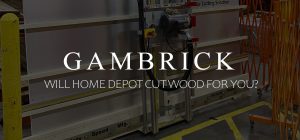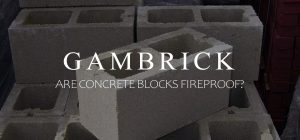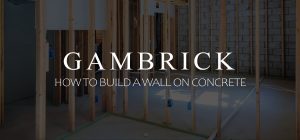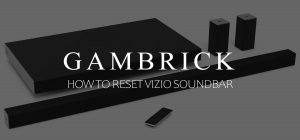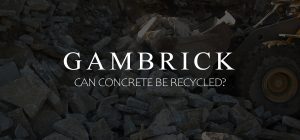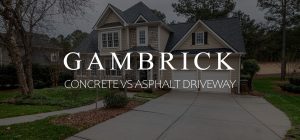Does A Tiny House Need To Be On Wheels
I want to build a Tiny House but I’m not sure what kind of foundation is best or what my options are. Does a Tiny House need to be on wheels? Or is a permanent foundation better? And what are the pros vs cons of each?
These are all very common questions we get asked by just about every client wanting to build a new Tiny House. The answer is no, they don’t have to be one wheels. But which is better is an impossible question to answer because it depends so much on how you plan on using your Tiny House and your goals for building it in the first place. Some clients want to live completely off grid and move around a lot. In this case a Tiny House built on wheels is the only option. But some just want a Tiny House because of how affordable they are and don’t plan on moving at all. They want grid power, gas, water and sewer just like a traditional home. And they own land to build on. For these clients a foundation is generally a better idea.
There area few exceptions that complicate matters even more. Tiny Homes on trailers can sometimes be set up with the exact same amenities that a foundation provides. So in that case why build a foundation. And some foundations, like wood pilings, are semi permanent so it’s easier to move your Tiny House in the future if you wanted to. For some clients it’s an easy decision to make, but for others, not so much.
There are definitely pros and cons for each method and we’ll be going over them all below.
What Type Of Foundation Is best For My Tiny House?
What type of foundation is best for your Tiny House will vary based on a bunch of factors. Both a trailer and permanent foundation have their ups and downs so it really comes down to what’s right for you. Consider a few of following questions:
- How do you plan on using your Tiny House? Will it be your primary home or used for some other purpose like a guest house, office or just a place to relax?
- Will you be traveling with your Tiny House or moving it at all?
- Do you own land where it’s legal to permanently build a Tiny House? If so, do you want something permanent built on the land?
- What type of foundation does your local building code require?
- Are there utilities at the street that can only be connected if you have a foundation?
- Do you live in an area where a home is safer to be bolted to a foundation rather than on wheels?
Other considerations include your budget, plans for the future, and where you live. Given that there are so many factors going into the decision it’s best to talk this over with a Tiny House Builder like us. We discuss every part of the Tiny House with our clients from the foundation to the finishing touches.
Below we’ll go over some of the major pros and cons along with lots of info about both trailers and permanent foundations.
Benefits Of Building Your Tiny Home On A Permanent Foundation (Pros)
Permanent Tiny House foundations come in several forms. These include concrete slabs, concrete footings, concrete walls with a crawl space or full basement, concrete blocks, or pilings. They can be built in all sorts of different shapes and sizes which gives a designer a lot more flexibility.
- Utilities. Tiny Houses with a permanent foundation can use traditional utility hookups like grid power, gas, water and sewer. A Tiny House on wheels will generally have a completely different set up with RV hookups and an off grid configuration.
- Approvals. Another advantage of a permanent foundation is that your Tiny House has a better chance of being approved for residential use as an actual home. This isn’t as easy to get depending on where you live.
- Strength. Permanent foundations are also much more likely to withstand a natural disaster than if your on a trailer because they’re bolted down to a strong footing or piling.
- Durability. Generally permanent foundations last longer than a trailer does. Of course this depends on the build quality of each but concrete is typically more durable than metal.
- Space. Tiny Houses don’t give you much extra room to play with for things like storage so having a place to put your things can be helpful. And in some cases you can finish the basement and even add a little more living space if zoning allows it.
- Height. Permanent foundations allow a Tiny House to be taller than if it were on a trailer. If you want high ceilings or a full height second floor in place of a loft then a real foundation may be a better choice for you.
These are just a few of the major advantages of building a Tiny House with a permanent foundation.
Disadvantages Of Building A Tiny House With A Foundation (Cons)
There are really only four main problems with a Tiny House being built on a permanent foundation and those are:
- Cost. It generally costs a lot more to build a foundation that it does to buy even the most expensive trailer. Any form of concrete foundation, be it a slab or concrete walls with footings, are a lot more expensive than a trailer. Pretty much the only foundation we can think of that’s around the same cost as a trailer are wood pilings and those are semi permanent. For many clients saving money is a big reason they’ve decided to build a Tiny House. So for them, building it cheaper is always better.
- Land. This could easily be a subheading of cost because owning land is expensive. Not only do you have to factor in the cost to build the foundation but also the land to put it on. Permanent Tiny House foundations are expensive when you add in all the costs.
- Mobility. For many clients the appeal of living in a Tiny House is how easy they are to move around. Once you build it on a permanent foundation you completely lose this benefit forever. Unless of course you lifted the home off the foundation and then built it onto a trailer. But wouldn’t it make more sense to just build it this way in the first place. By building your Tiny House on a trailer you can move around wherever and whenever you like. But if your attached to a foundation then moving means leaving your home behind.
- Rules. A lot of people love the freedom of moving around whenever they like. Once you build a permanent foundation you’ll have all sorts of rules and zoning requirements to deal with. Building and owning a home can be a pain some times and owners of mobile Tiny Homes don’t have to deal with any of this.
As you can see there are a few more benefits of building a Tiny House on a foundation compared with a trailer. Although that doesn’t mean it’s the right decision for everyone.
Benefits Of Building Your Tiny Home On A Trailer (Pros)
Even though there are lots of benefits to building your new Tiny House on a permanent foundation, it’s not perfect. Building on a trailer has several advantages a foundation can’t come close to offering. These include:
- Mobility. One of the biggest benefits to building a Tiny House on wheels is mobility. Just hook up to a truck and move your Tiny House wherever you like, whenever you like. The mobility of a trailer gives you so much freedom that foundations simply can’t compete with.
- Cost. Even the best trailer is a lot cheaper than just about every permanent foundation. Whether it be a slab, crawl space or full basement, a trailer is by far the cheapest option. The only type of foundation that’s comparable in price is wood pilings however, they’re considered a semi-permanent foundation because the pilings can be removed at any time.
- RV. Tiny Homes on wheels are considered an RV, so you’ll have access to lots of places with RV hookups. It’s a nice convenience to take advantage of if your looking for somewhere to stay that offers some amenities like water, electric, cable or internet.
- Flexibility. We build all of our Tiny Homes on trailers with the option to be placed on a foundation later. If you eventually want to settle down in one place you’ll have the flexibility built in to do it. Just build a foundation to the specs we provide and then move your Tiny Home off the trailer and onto the new foundation. You can even sell the trailer later if you want the cash.
- Rules. Since your Tiny House isn’t a permanent structure you won’t have to follow the same strict rules a permanent home. It’s a big benefit to someone like me who wants to do what I want with my own house without worrying about what neighbors think or the township.
These are just a few of the main benefits to building your Tiny House on a trailer. Make sure if you opt for the trailer that you build on one that’s high quality. A home’s foundation, even if it’s a trailer, is very important.
Disadvantages Of Building A Tiny House On A Trailer (Cons)
While building a Tiny House on wheels has a lot of advantages, there are still a few drawbacks worth considering. Here’s a few:
- Size. If your building a Tiny House on a trailer then your limited to only what you can fit on a trailer. This is true of both the width and height. There are rules to how big something can be that your towing down the highway While this is big enough for most people it’s definitely too small for some.
- Options. Again, because you have to fit the entire house on a single trailer it can’t be any shape you want. A square, round or L shaped Tiny House just won’t work unless you build it on a permanent foundation. A rectangle shape is pretty much the only kind you can have with a trailer.
- Rules. Although you won’t have local building codes to worry about, there are still some rules. If you want your Tiny House to be used as an RV then in some States it’ll have to be inspected and certified by the Recreation Vehicle Industry Association. It’s not that big a deal to get it done but it means more rules and regulations to follow.
- Zoning. Many towns still require zoning approvals if you want to park your Tiny House somewhere for extended periods of time. For example, here in New Jersey the rules are very strict. You can’t just park a Tiny House anywhere you want even on your own land if the town finds out your living in it.
- Truck. If you’ve got a Tiny House on a trailer then you’ll need something strong enough the tow it with. This is one of the main factors people forget to consider. Although building your Tiny House on wheels is a lot cheaper than if you built it on a foundation. A foundation doesn’t require an expensive truck to pull it around. In the end it could all even out.
- Maintenance. Tires or rust aren’t things you’ll have to worry about with a foundation. Building an a metal trailer brings issues that you won’t have to worry about with a foundation
Even though there are plenty of benefits to building on a trailer, nothing’s perfect. These were just a few of the drawbacks that you may end up having to deal with.
What’s Best For Your Tiny House?
We’ve discussed the major pros and cons of building a Tiny House on a trailer vs a permanent foundation. But that doesn’t cover everything you need to know or think about. Below is a some additional info that could be useful.
Wheels Vs Foundation
Since tiny houses aren’t legal in every State, if you plan on building one on wheel make sure you know the rules and have somewhere to park it. If you’re RV or RVIA certified, you can use RV camping lots, campgrounds, national and state parks, or other places that are mobile home friendly.
But if your looking to get away from it all we recommend looking for agricultural land or tiny house communities that allow Tiny Houses. Places like this are growing in popularity all across the country.
Having a safe and legal place to park your Tiny House should be a priority right from the start if your building it on wheels. As well as having a vehicle strong enough to tow it. Don’t build your dream home only to discover you have nowhere to go and nothing to pull it with.
Building a permanent foundation for your Tiny Home could be a solution to all these issues. Although this route can have some challenges too. So States have size requirements for how small a permanent Tiny House can be so check with your local township before you start building.
Weight
The weight of your Tiny House should be considered before you start building for a few key reasons.
- Don’t forget that you actually have to tow this thing. Don’t build it so heavy that you need an 18 wheeler to pull it around.
- Make sure the weight is distributed evenly. If your house is unbalanced on the trailer it’ll be difficult to tow and possibly unsafe.
- Weight should be calculated before you start building. Don’t build your dream Tiny House and find out later you can’t pull it.
- When you shop for the right trailer the weight of your house is very important to know. Buying an oversized trailer can waste money. But buying an undersized one can be dangerous.
Your Tiny House builder will calculate the weight before they start construction but you need to be upfront about what you can handle.
Towing Capacity
Towing capacity is an important issue that ties into the weight of your Tiny House. If you plan on towing it around then you need a vehicle that can handle it. After all, a Tiny House on wheels doesn’t drive itself. One of the biggest mistakes we see in the industry is people buying or building Tiny Homes that are too much for them to tow.
Another issue is safety. Are you able to tow the house around safely as a driver. It’s not as easy to drive when your pulling tons of weight behind you. Make sure you can safely tow your Tiny House even if you have a truck capable of pulling it. Some of these homes weigh around 20,000 pounds. That’s not an easy thing to maneuver.
If your not comfortable with towing a Tiny House there are companies that’ll do it for you. But they’re quite expensive.
Financing
If you need financing to build your Tiny House it’s a totally different process to build on a foundation compared to a trailer.
Building a Tiny House on a foundation is just like building any other home. You apply for a new construction loan at the bank that later becomes a mortgage. Even though the home is small everything else about it is the same as a traditionally sized house.
No bank that I’ve ever heard of is offering a standard mortgage to build a Tiny House on wheels. You can get a loan to buy one that’s the same as buying an RV but not to build it. The payment terms and interest rates are both different. When your on a foundation the bank considers a Tiny Home to be a real house with equity and land. When it’s on wheels a Tiny House is considered an RV.
Appreciation
Building your Tiny House on a foundation gives you the benefit of real estate appreciation.
Let’s say the real estate market in your area goes up 10%. You’ll gain that appreciation value if you build on a foundation. This comes in handy not only if you plan on selling but also if you take out a home equity loan. I’ve never heard of a bank giving out a home equity loan on a Mobile Tiny House. Every bank we’ve ever worked with has required a foundation and a permanent address in order to qualify for a home equity loan. You may be able to use a Mobile Tiny Home as collateral on a personal loan but the rates will probably be a lot worse.
RV values do just the opposite. In general, any type of motor vehicle goes down over time unless you either restore them or they’re a collectible. In the case of a Tiny House it’s a little different but from what I’ve seen Tiny Homes on wheels don’t have the same appreciation over time as when they’re built on a foundation. This is mainly due to the fact that they’re considered a form of RV.
Equity
As you pay off a mortgage you gain equity in the home. That’s true of a Tiny House on wheels too but it’s not as easy to farm it out when you need it. Many investors build equity in a home and then take out loans against the property to make more investments. It’s called equity farming and is typically done on investment properties or rentals. It’s not really an option when your on a trailer.
Mother Nature
Driving your Tiny House away from an incoming flood or hurricane does have it’s advantages. However, your much safer being built on a strong foundation if you can’t drive away from the storm.
Insurance
Insuring a Tiny House on wheels costs more than when it’s on a foundation.
When your on wheels you not only have to buy RV insurance for when it’s on the road but additional coverage is also recommended to protect against theft and damage. Especially if you plan on living in the home full time.
When your on a foundation a standard homeowners insurance policy is generally more than enough. The coverage is generally better and costs less.
Size Restrictions
When your on a trailer you’ll have restrictions on the size and shape of your Tiny House. This is due to safety concerns and what you can pull on the roads unless you want to deal with oversized load permits. Sticking to highway legal standards means we build our Tiny Homes on wheels to the following size guidelines:
- Rectangular footprint
- 8.5 feet wide
- 40 feet long
- 13.5 feet tall
Despite these limitations, there’s a lot we can do with a Tiny House.
Summary: Does A Tiny House Need To Be On Wheels Or A Foundation
If your thinking of building a Tiny House then you’ll have a lot of decisions to make. One of the biggest being what type of foundation to build it on.
A tiny house has two main options when it comes to a foundations. permanent or on a trailer. Neither is the clearly better options because they each have lots of pros and cons attached. All that really matters is what’s right for you. Maybe you value being able to hook up and go any time you like. If a nomadic lifestyle is your dream then you’ll definitely like building a completely off grid Tiny Home on wheels. However, if you don’t want to move around and like utilities like sewer, water, gas and grid electric then a foundation may be the better choice. Either way, there are fantastic options available to you with a Tiny House.
I hope some of the information found on the page helps you make an informed decision about which type of foundation is right for you.
If you have any questions or comments e-mail us any time. We’d love to hear from you.


